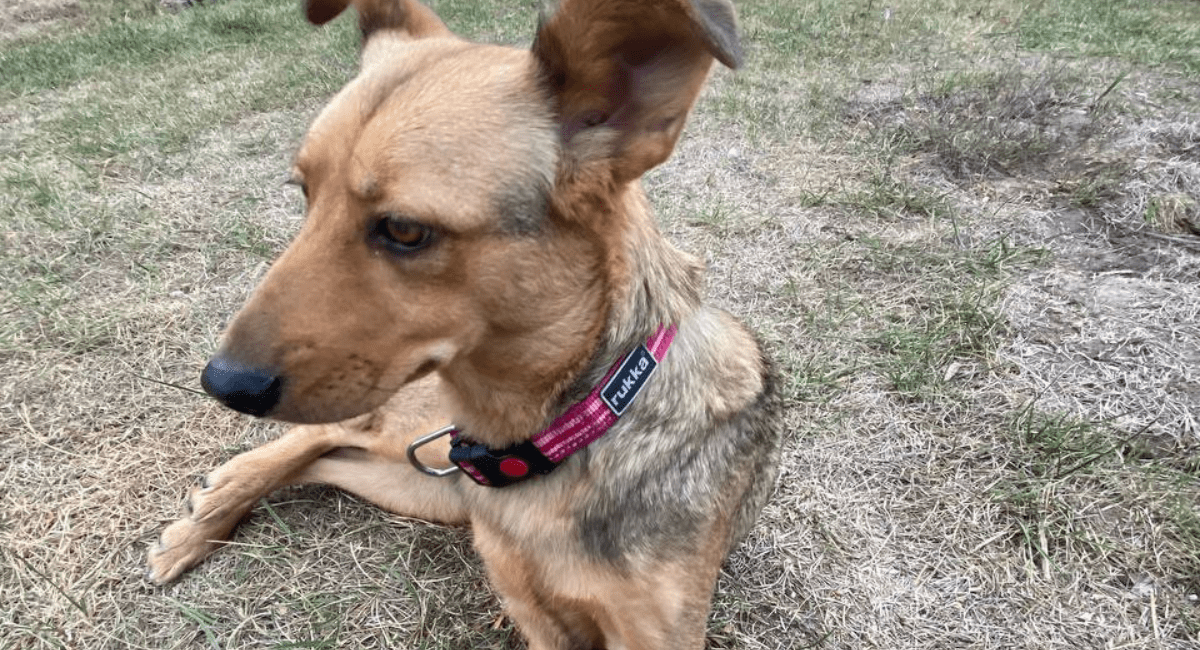At Veterinarians Without Borders North America (VWB), our team members and volunteers are often on the frontlines of building capacity for animal health through trainings and other veterinary services aimed at keeping animals and communities as healthy as possible. Because of this incredible and varied community of voices, VWB has launched 'Ask an Expert' — a blog dedicated to featuring community members and their varying experiences in the animal health space.
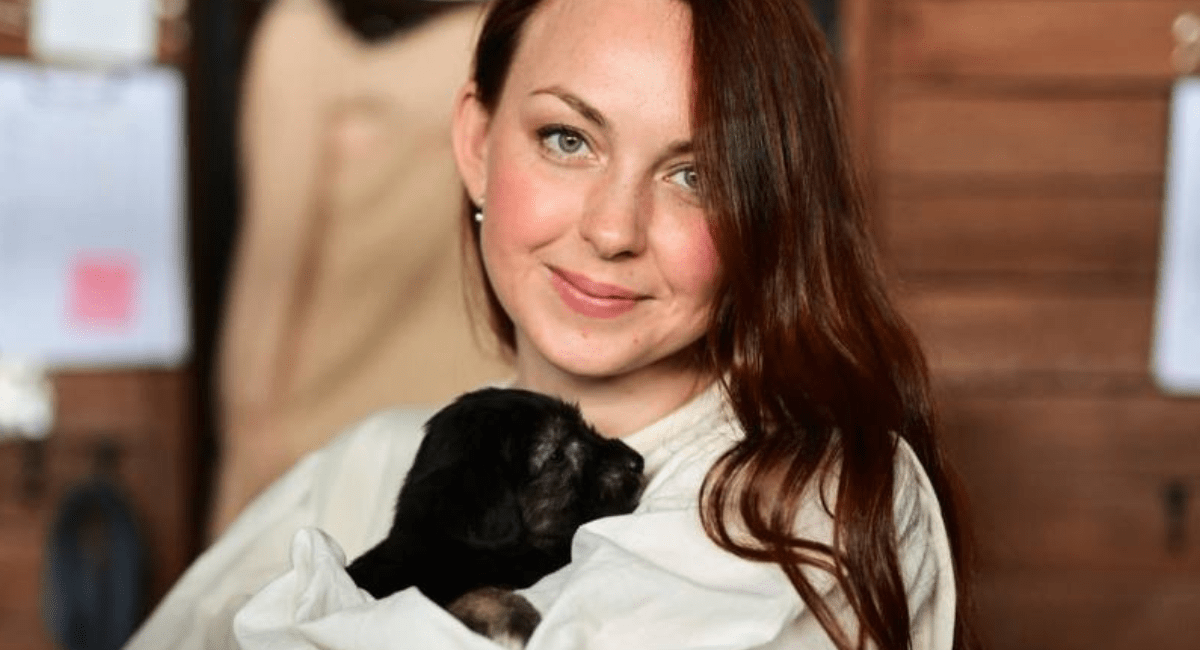
Our latest expert is Iryna Podvoyska, a veterinarian and the manager of Kyiv's Patron Pet Center — one of VWB's on-the-ground partners in Ukraine. Originally a veterinarian from Kharkiv — which has become a frontline area — Iryna has since relocated to Kyiv where the Center was officially launched in 2023. The Patron Pet Center is a lifeline for many Ukrainian animals that have been rescued from frontline areas. It provides animals with life-saving care and the opportunity to find loving forever homes.
In this interview, Iryna discusses launching the Patron Pet Center and providing care for animals during the ongoing war.
*This interview was translated with the support of VWB's Ukraine Program Manager, Daria Kuznetsova.
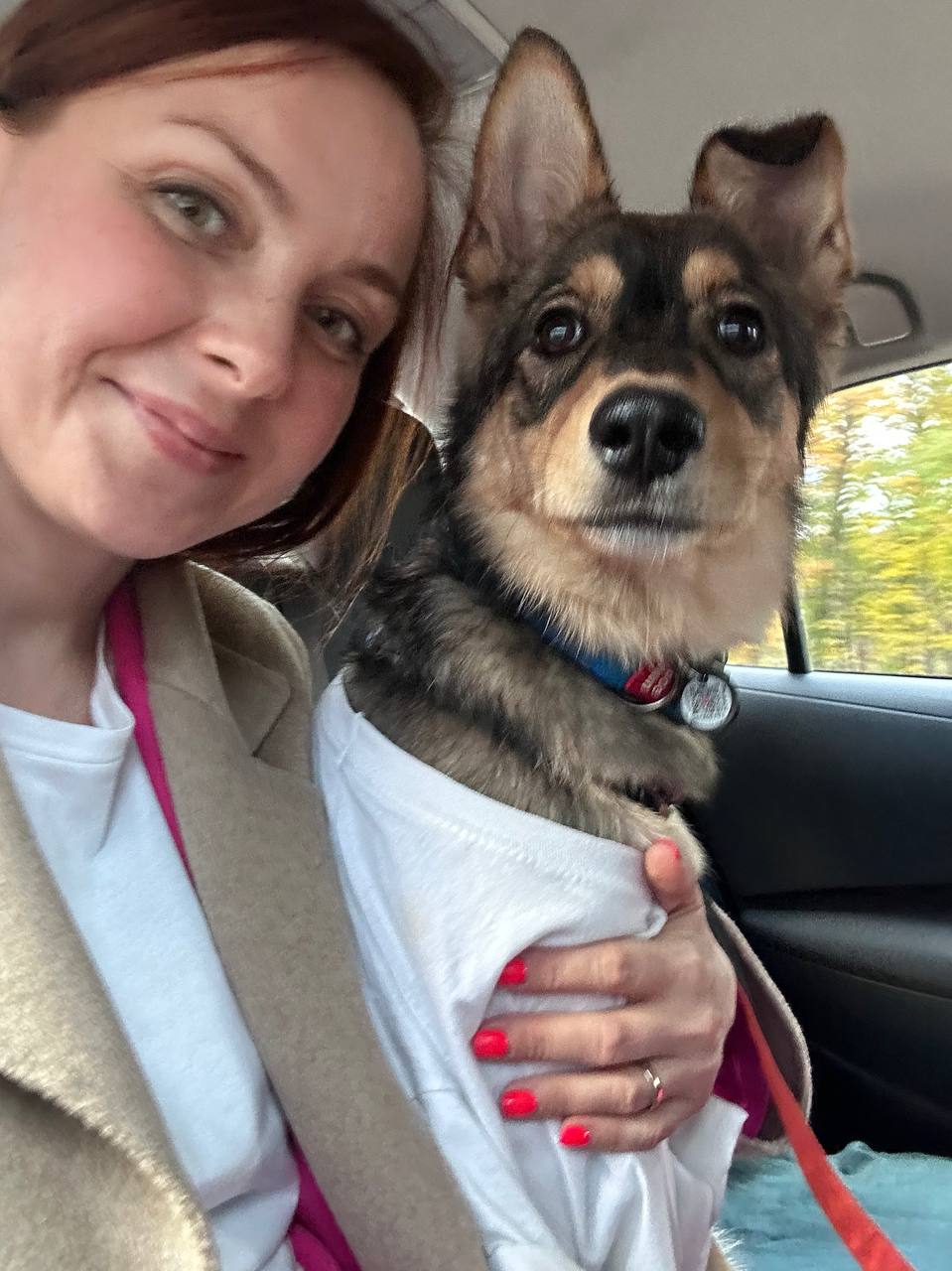
Q: Can you describe the history of the Patron Pet Center and some of the challenges faced by your team?
A: The Patron Pet Center has existed for a little over one year. It officially opened following the Kakhovka dam destruction, which was in June 2023. When the Center initially opened, it only had 14 enclosures but because the dam situation was an emergency, it was a very quick decision to open it right away. The goal at that time was a bit different than what it is now; all of the shelters were accepting animals from Kherson because of the flooding. Shelters were overcrowded and Patron wanted to help ease the burden, despite having just 14 enclosures. In our first month of operating, we managed to find 75 forever families for animals – 75 out of 100 of the animals that were taken into the Center!
When I first started this journey in January 2023, I started as the Center's manager. [There was only] an empty building. I started planning the enclosures and how to organize the space in this building. This included a quarantine zone and well-ventilated areas to ensure animals are kept healthy. With the influx of animals follow the flooding, we began building new enclosures; because of the dam incident, media was super interested in how these animals were being cared for. We had just opened and I was already giving 30 interviews per day, volunteers were bringing in animals, builders were building enclosures – all of this happened in the first month.
Q: How many animals are currently in Patron Pet Center's care?
A: As of today, we have almost 150 animals at the Center. Each month, we receive about 60-100 new animals, and out of this number, we typically adopt out about 75 animals. Most of these adoptions are happening to families and individuals living outside of Ukraine.
Q: How has the ongoing conflict affected the Center?
A: Because we take animals from frontline areas specifically, we are focused on treating, rehabilitating, and eventually adopting out animals. We can monitor animals from being brought in to being adopted out. Generally speaking, animals arrive with volunteers from the frontlines, including 12 Guards. Sometimes we receive animals in "as is" condition from these frontline areas, however, usually animals will be at a certain level of health, because otherwise, they wouldn't have survived the trip to Patron from a frontline area. Usually teams that are first responders initially treat these injuries caused by bombings and other attacks. When Patron receives an animal, they sometimes have pre-existing conditions, like heartworm. They may also have things like shrapnel in their bones [or PTSD].
One challenge is that everyone focuses on immediate disasters [such as the Kakhovka dam disaster or the initial full-scale invasion; when there is a disaster, people want to give money. What's often overlooked are more sustainable projects, like Patron… This type of mentality has to be changed.
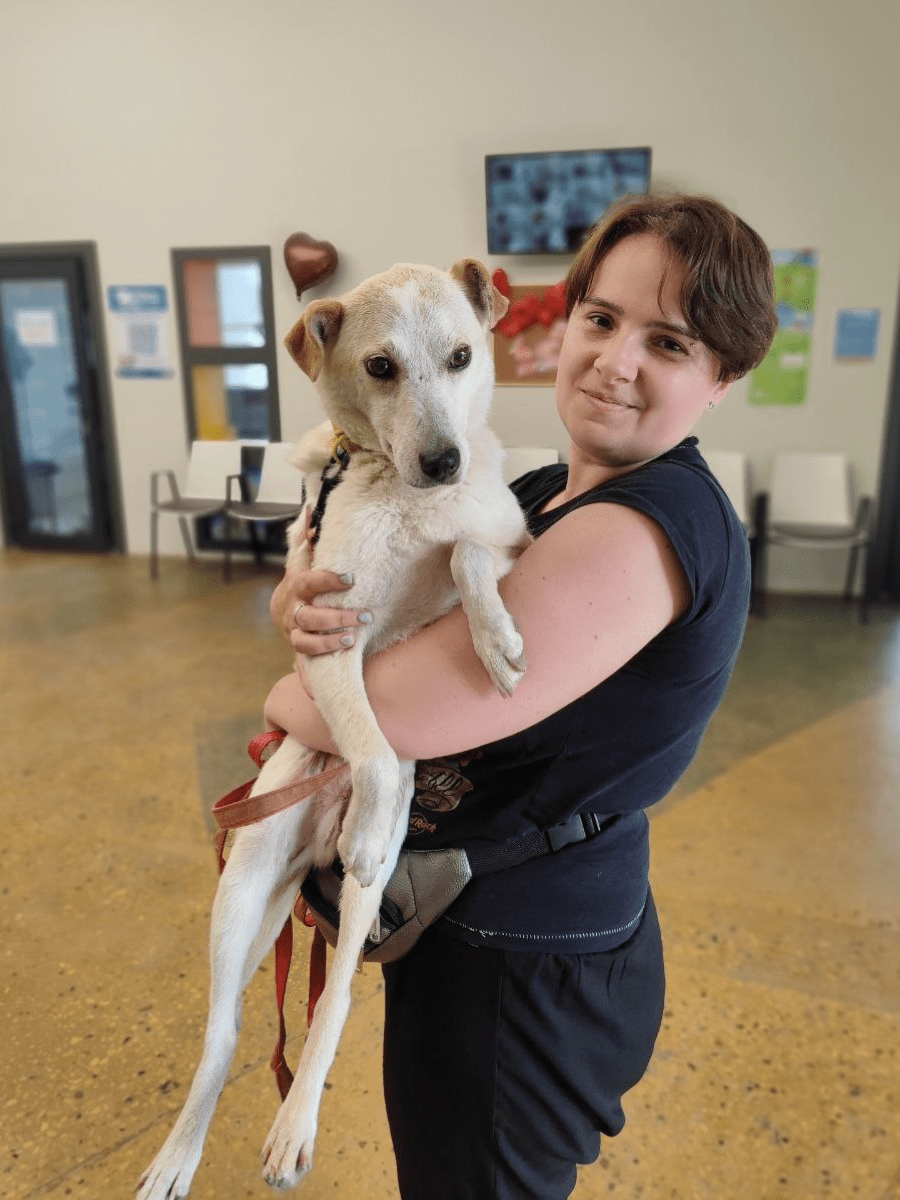
Biliash at the Patron Pet Center.
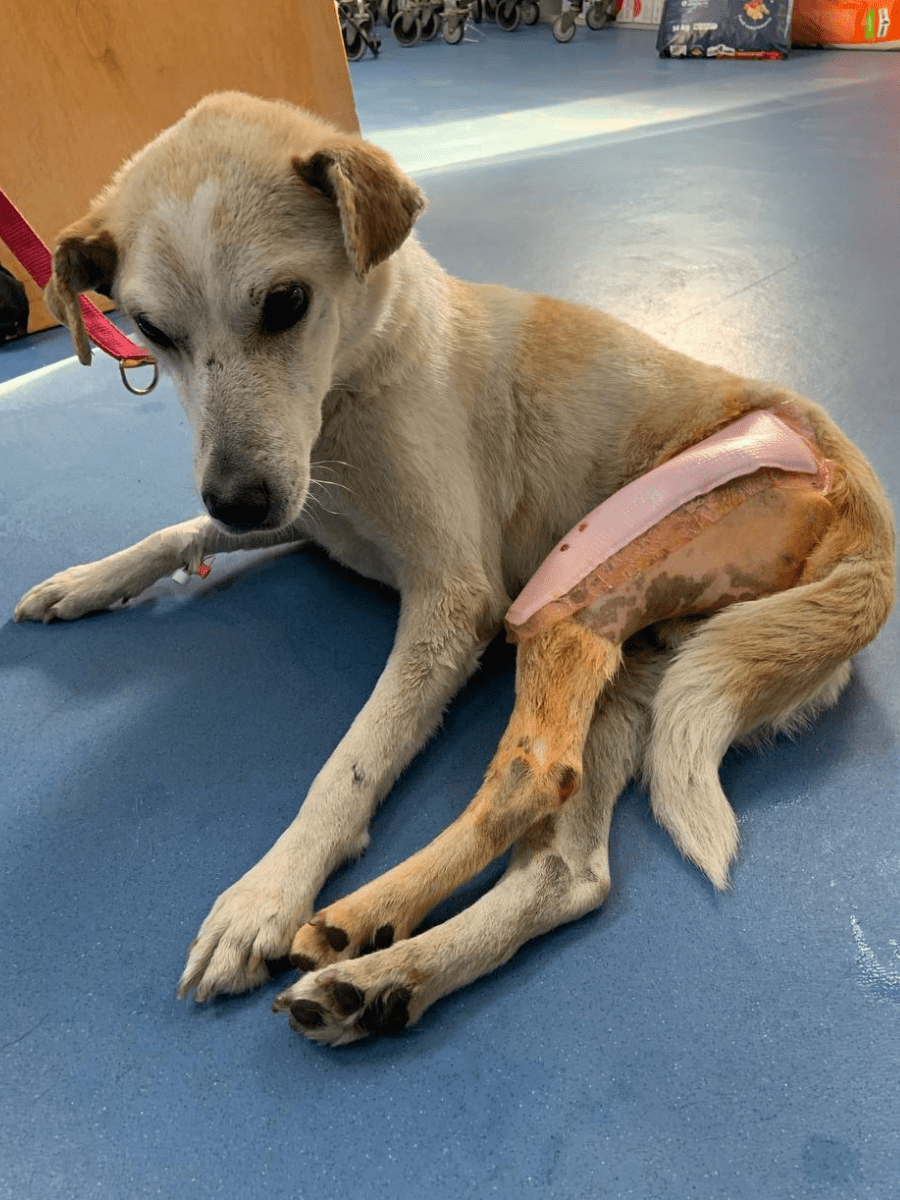
Biliash recovering from his surgery.
Q: Can you share a particularly memorable story about an animal you’ve recently rescued?
A: A small dog, that was near death, was found by 12 Guards in the city of Sumy. He was named Biliash, which means “white” in Ukrainian. Sadly, he was discovered in a plastic bag with a broken tibia bone. The veterinarians in the field decided it wasn’t possible to do surgery remotely, and no one knew if he would survive the journey to Kyiv. However, he did. Biliash was brought to the Patron Pet Center, the surgery was performed, and he miraculously healed. He was then adopted by a Ukrainian refugee family living in Germany. Although he still had stitches, the family paid for his transfer to Germany, and he is now living there happily. He still limps a little but is doing well.
Q: What keeps you motivated to continue your work despite the challenges you face?
A: After the full-scale invasion of Ukraine started in 2022, I became a refugee in Germany. But I then saw Veronika from 12 Guards post a vacancy at an animal shelter [in Kyiv]. I responded, as I'd always dreamed of helping animals and having a self-sustainable adoption center in Ukraine... I dream of building an [animal health] network across Europe with other adoption centres and veterinary clinics. I dream that, for animals, there will be no more borders. That there will be an animal health community, and if [one animal health service or support] can be found in Ukraine, it could also be found somewhere else.
You can help support animal shelters in Ukraine just like the Patron Pet Center. Learn how here.

